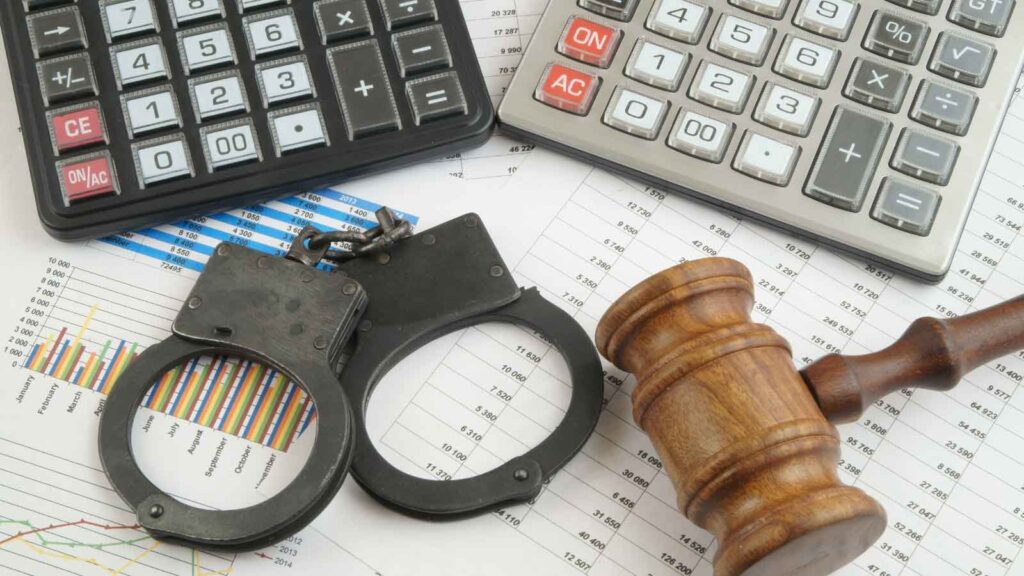Being accused of business fraud can send shockwaves through your entire operation. You may be facing frozen assets, internal confusion, concerned employees, or even a damaged reputation. On top of that, the legal side can feel like a maze, especially if you’re unsure how to respond to an investigation or what consequences could follow. These high-stakes situations often reveal some of the top challenges businesses face when their integrity is at stake.
This guide breaks down what business fraud means, how legal defenses work, and what to expect if you’re under scrutiny. Whether you’re currently dealing with allegations or simply want to be prepared, understanding the risks—and your options—can make all the difference.
What is Business Fraud
Business fraud happens when a company or individual uses deception to gain an unfair or unlawful advantage. It can target vendors, customers, banks, or even the government. Fraud isn’t always obvious. Sometimes it’s hidden in financial statements, concealed behind shell companies, or carried out through manipulated contracts. At other times, it’s as simple as someone lying to facilitate a deal.
This type of fraud is more than a compliance issue. It can lead to civil lawsuits, criminal charges, and long-term damage to the brand. Below are some common forms of business fraud:
- Financial Statement Fraud: Misreporting income, expenses, or assets to mislead investors or regulators.
- Embezzlement: Misusing company funds for personal gain, often by trusted insiders.
- Payroll Fraud: Falsifying work hours, fake employees, or unauthorized bonuses.
- Invoice Fraud: Submitting inflated, duplicate, or fake invoices.
- Procurement Fraud: Manipulating bidding processes or awarding contracts in exchange for kickbacks.
- Bribery and Corruption: Offering or accepting favors to influence business decisions.
- Identity Theft and Impersonation: Using false business identities to secure loans or commit financial crimes.
Fraud can be internal or external, deliberate or negligent. Regardless of how it begins, once it’s uncovered, the legal and financial consequences escalate quickly. That’s why understanding the details is so important—and why defenses must be built with care and clarity.
Legal Defense Strategies for Business Fraud Allegations
Facing a business fraud allegation is not just about defending a reputation—it’s about protecting the future of your company. Legal strategies must be precise, tailored, and based on a clear understanding of how fraud cases unfold. So, what specific tactics do defense teams rely on to challenge fraud claims?
Understanding the Elements of Fraud That Prosecutors Must Prove
For a business fraud charge to stick, prosecutors must meet specific legal standards. They have to prove that a false representation occurred, that it was made knowingly, with the intent to deceive, and that it caused harm to another party.
This is where the defense strategy begins. The legal team often focuses on undermining the idea that the accused intended to commit fraud or even knew the information was false. If intent isn’t clear, or if reliance or harm can’t be shown, the case may not meet the criteria for fraud. Understanding how these elements work helps shape the core arguments of any fraud defense.
Common Legal Defenses and Their Application in Corporate Fraud Cases
Defending against fraud isn’t always about denying everything outright. It’s about understanding where the allegations fall short. One common approach is to show that there was no deliberate attempt to mislead anyone. Business decisions can involve risk and mistakes, but that doesn’t necessarily mean fraud has been committed.
Another route is to demonstrate that the information in question was accurate or not materially significant. A misstatement that didn’t influence the other party’s actions may not qualify as fraud. Legal teams also assess whether the opposing side acted reasonably and performed due diligence. These angles, used effectively, can shift the case in the defense’s favor.
Navigating Settlements Versus Litigation in Fraud Proceedings
Not every fraud case goes to trial. Some businesses choose to settle to reduce financial risk, avoid drawn-out legal battles, or limit public exposure. Others opt to fight in court, especially if the claims seem weak or if clearing their name is a priority. This decision necessitates a thorough evaluation of potential outcomes.
A well-prepared defense team will weigh the evidence and the credibility of witnesses, while also planning for comprehensive trial preparation. They’ll also consider how a settlement might affect regulatory standing, partnerships, or future contracts. Choosing between settlement and litigation is a strategic decision, not just a legal one. It often comes down to how much control the business wants over the resolution.
Selecting the Right Business Attorney for Fraud Cases
Legal strategy is only as strong as the team behind it. Choosing the right attorney can significantly impact the outcome of a fraud case. The ideal lawyer offers more than just courtroom skills—they know how to guide businesses through legal pressure. So, what should you look for when hiring legal help in a fraud case?
Essential Qualifications and Expertise to Look For in Fraud Defense Counsel
Business fraud cases require a high level of legal skill. The attorney must have a thorough understanding of fraud and the specifics that must be proven. They should also know how to read between the lines of contracts, financial reports, and internal policies. This isn’t the kind of work every lawyer can do well.
Building an Effective Attorney-Client Relationship During Fraud Investigations
Strong communication is essential when defending a fraud case. Your attorney needs full access to information and honest answers to difficult questions. In return, you need clear advice and regular updates. Without that trust, mistakes happen and opportunities get missed.
Hiring a reliable business dispute attorney can make all the difference in how the investigation unfolds. They should make time to explain legal terms, help you understand your rights, and respond when issues arise. This isn’t just about legal filings—it’s about having someone who can guide you through every decision, from initial response to outcome.
Final Thoughts?
Business fraud allegations can escalate quickly, impacting finances, reputation, and long-term stability. Whether you’re facing an internal investigation or formal legal charges, the right defense strategy can make a significant difference. Understanding the legal landscape, recognizing how prosecutors build a case, and working with the right business attorney all play critical roles in how things unfold.
Taking early action is key. If you’re dealing with fraud concerns or are already under legal scrutiny, don’t try to manage it alone. Contact Nick Heimlich Law for professional, experienced representation. We understand how to approach complex business cases and are ready to help you protect what you’ve built.



